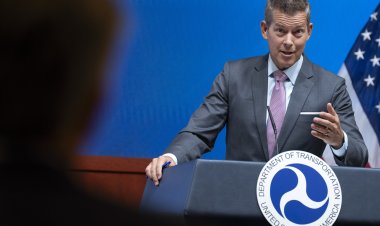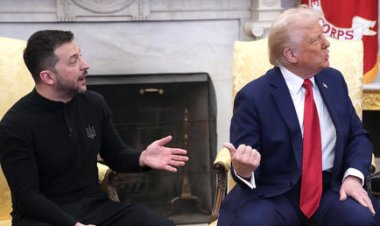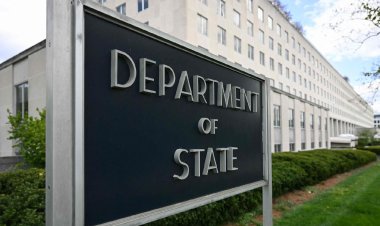Jury convicts Oath Keepers leader of seditious conspiracy
Stewart Rhodes’ conviction is the most significant to emerge from the Justice Department’s investigation of the 2021 attack on the Capitol.


A jury has convicted Oath Keepers founder Stewart Rhodes of masterminding a plot to violently subvert the transfer of power from Donald Trump to Joe Biden, finding that he entered into a seditious conspiracy against the U.S. government.
The jury also convicted Rhodes ally Kelly Meggs, leader of the Florida Oath Keepers, of seditious conspiracy. But the jury acquitted three co-defendants — Jessica Watkins, Kenneth Harrelson and Thomas Caldwell — of joining Rhodes in that conspiracy. All five, however, were convicted on additional felony charges, including obstruction of Congress.
Rhodes’ conviction is the most significant to emerge from the Justice Department’s sprawling investigation of the Jan. 6, 2021, attack on the Capitol, when dozens of Oath Keepers joined the mob that stormed the building and chased Congress, as well as then-Vice President Mike Pence, into hiding.
Rhodes faces a maximum sentence of 20 years on the seditious conspiracy conviction. The other defendants also face 20-year maximum sentences for the obstruction conviction. The 12-juror panel deliberated for three full days before reaching its verdict.
All of the defendants but Watkins were also convicted of tampering with evidence. Meggs, Harrelson and Watkins were also convicted of a conspiracy to prevent members of Congress to discharge their duties. The same three defendants were all acquitted of property destruction at the Capitol.
During the nine-week trial, prosecutors contended that the group, at Rhodes’ direction, prepared for an armed rebellion against the government shortly after Biden was projected to be the winner of the 2020 election. Government attorneys painstakingly reconstructed thousands of text and Signal messages sent among key players in the alleged conspiracy during that crucial time period — as Trump falsely claimed to be the victim of widespread fraud and his allies began mobilizing to help him subvert the election results.
Some of Rhodes’ lieutenants, including Meggs, Watkins, Harrelson and Caldwell, were heavily involved in those conversations or, prosecutors claimed, deleted evidence of their involvement. Several others charged in the seditious conspiracy plot are slated to go on trial next month, and another group of Oath Keepers facing obstruction charges for their own Jan. 6 actions are scheduled to go on trial in February.
Throughout the two months after Election Day, Rhodes employed increasingly bellicose rhetoric to urge on supporters to reject the incoming Biden administration, suggesting at times that he and other Oath Keeper allies should resist the authority of the government and even take up arms against it if Biden were to be inaugurated. He mounted a public effort to persuade Trump to invoke the Insurrection Act, a 19th-century statute that he claimed would permit Trump to deploy the military and deputize the Oath Keepers as a government-backed militia in order to prevent the transfer of power.
But prosecutors noted that Rhodes repeatedly told followers — using rhetoric drawn from the Revolutionary War era — that they would have to take matters into their own hands if Trump didn’t act. He was present outside the Capitol while a mob of Trump’s supporters ransacked the building and bludgeoned police lines, celebrating the crowd’s actions while two dozen of his allies were inside.
And he later lamented after the Jan. 6 attack on the Capitol that his supporters opted not to bring their rifles to Washington.
Defense attorneys contended that Rhodes and the other four Oath Keeper defendants were prone to violent rhetoric but took no effort to back up their words. They noted that they left their firearms arsenal at an Arlington, Va., Comfort Inn on the day of the riot. They traveled to Washington to perform security details for speakers at Trump’s “Stop the Steal” rally and related events, including figures like longtime Trump ally Roger Stone and event organizer Ali Alexander, who were among those in a Signal chat with Rhodes shown by prosecutors and defense attorneys.
Rhodes’ lawyers said he didn’t order or authorize his allies’ decision to enter the Capitol during the riot, and some witnesses said he later described their decision to go inside as “stupid.” The Oath Keepers also had a practice of establishing an armed “quick-reaction force” alongside security operations they participated in, just in case events turned violent — not an arsenal meant to overthrow the government, their attorneys said.












